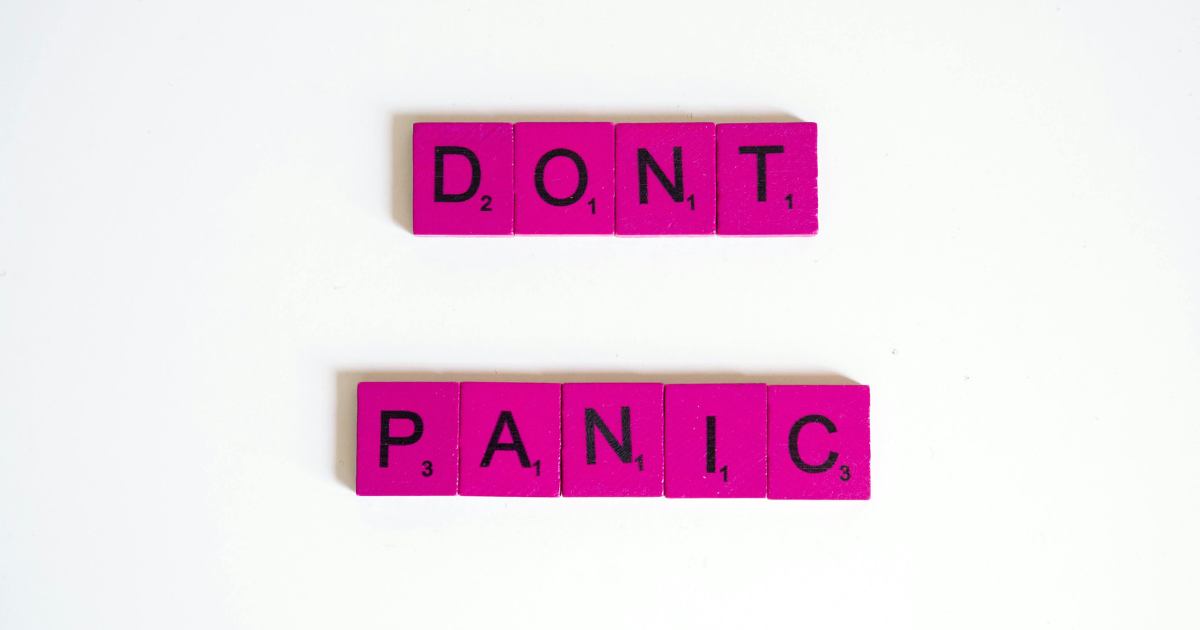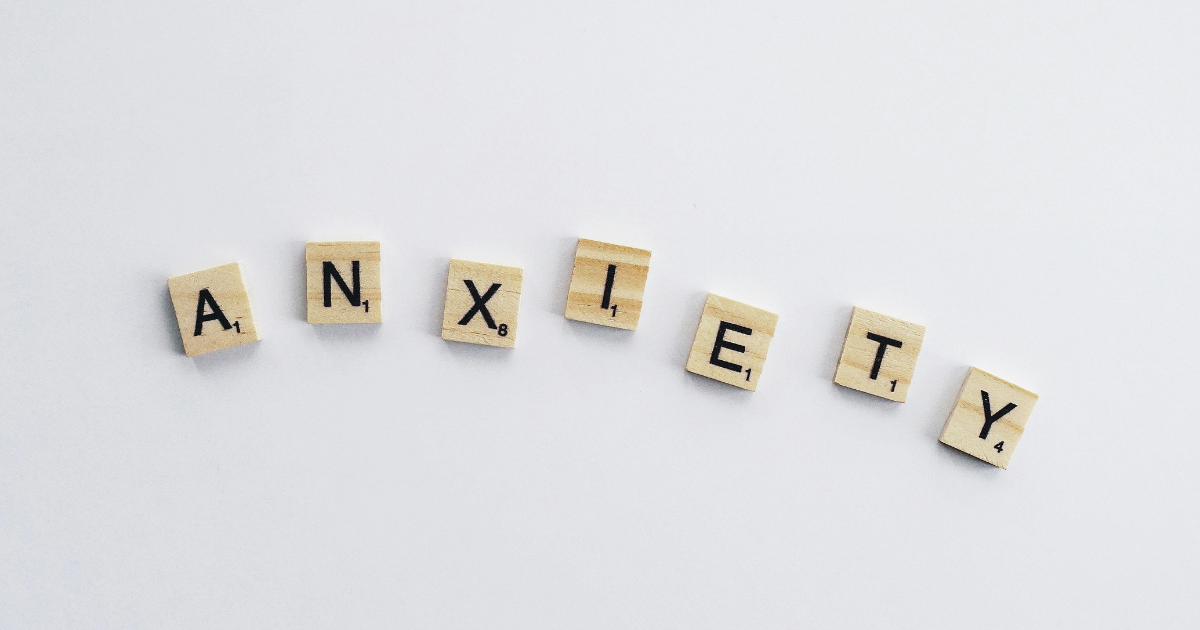What Is an Anxiety Attack?
Usually milder than a panic attack, an anxiety attack is a severe period of worry or fear triggered by a situation, thought, or stressor. It is a time when worry and fear become intense, preventing a person from doing normal or stressful activities.
Commonly, individuals experiencing anxiety attacks have a strong feeling of dread or apprehension, though the physical sensations tend to be less dramatic than those experienced in an anxiety attack.
Symptoms of Anxiety Attacks:
- Over-concern about mundane things.
- Irritability and restlessness.
- Muscle tension and weakness.
- An inability to concentrate or mind blank.
- Trouble with sleep.
In contrast with anxiety attacks, panic attacks are more than likely prompted by chronic stress or anxiety. The symptoms evolve gradually. An attack could last very long, depending on the stimulus. Usually, hours or even days pass until the stressor is taken care of.
What Is a Panic Attack?
Panic attacks are extreme and unexpected attacks of fear or discomfort, unrelated to some visible cause. The key difference between an anxiety attack and a panic attack is the rate at which panic attacks start and then escalate. They usually reach their peak within a few minutes, sometimes even as short as one minute. Such attacks might be so severe that sufferers feel that they are being strangled, having heart attacks, or dying.
Symptoms of Panic Attacks:
- Racing or Palpitations.
- Shortness of breath or a feeling of being choked.
- Pain or discomfort in the center of the chest.
- Dizziness, lightheadedness, or even fainting.
- Trembling or shaking.
- Fear of “losing control” or “going crazy.”
These episodes often come on without warning. The intense physical symptoms can be almost debilitating, even for patients who have experienced them previously.

Symptoms of Panic Attack Vs. Anxiety Attack
Symptoms of a panic attack vs. an anxiety attack are pretty much the same. Still, the difference is there in severity, time cycle, and attack pattern, which brings these two situations differently:
Panic Attacks | These attacks last from 5 to 20 minutes. All the symptoms of heart palpitation, sweating, shakiness, chest pain, dizziness, and the feeling that something terrible is about to happen all begin at once and happen spontaneously without any explanation. |
Anxiety Attacks | Anxiety attacks are usually developed over time and triggered by a precipitating stressor or some anxiety-provoking stimulus. Chronic worrying, restlessness, irritability, muscle tension, and disturbed concentration are the features that do not have acute somatic symptoms as in a panic attack. |
In other words, panic and anxiety attacks differ as they come without any warning signs and are hit with high power. The latter strikes step by step and for a prolonged period.
Causes of Panic Attack Vs. Anxiety Attack
To get to know and recognize some of the causes of panic attacks vs. anxiety attacks, first, it is essential to know about the causes of a panic attack and anxiety,
Causes of Panic Attacks
- Genetics. Panic attacks have been proven to be in families, suggesting some predisposition in their genetics.
- Traumatic Events. Trauma, abuse, or significant life changes such as moving, loss, etc.
- Health Issues. Hyperthyroidism, heart disease, asthma, etc., predispose to panic attacks.
- Drug Abuse. Use of stimulants such as caffeine, alcohol, or drugs of abuse can lead to anxiety attacks in those who are vulnerable to them.
Causes of Anxiety Attacks
- Extreme Stress for a Long Time. At work or school, extreme stress from other people in personal relationships can lead to anxiety attacks.
- Perfectionism. People who have expectations from themselves or someone else tend to get more frequent anxiety attacks.
- Traumatic Experiences. Child abuse and other abuses might have made some individuals develop an anxiety disorder at a later date and even anxiety attacks.
More situations fall under situational stimulus or summation, often panic attacks vs anxiety disorders, most of which occur due to chronic worry or stress that has been built over some time.
Risk Factors for Panic Attack Vs. Anxiety Attack
Understanding risk factors for panic attacks vs. anxiety attacks would make one aware of who is more prone to become a victim of the conditions.
Risk Factors for Panic Attacks
- Family History. Any person who has a family history of panic disorder is sure to become prey to this illness.
- Mental Illness. The ones suffering from conditions such as depression, PTSD, or OCD are bound to develop panic attacks.
- Substance Abuse. In this condition, there is a high probability of drug or alcohol use by the victim.
Risk Factors for Anxiety Attacks
- Life Stressors. Job and family issues occasionally manifest as chronic stressors that cause anxiety attacks.
- Personality Traits. Anxiety attacks are more common in individuals who have neurotic personality traits or perfectionists.
- Medical Illnesses. Such medical conditions as heart disease and diabetes cause panic attacks since they are a load on the body over a long period.
The same risk factors, such as a family history of mental condition or prolonged stress, also trigger them. Biological, genetics, and brain chemistry explain most causes of panic attacks, as in anxiety attacks, there’s always a psychological cause.
Diagnosing Panic Attack Vs. Anxiety Attack
Comparison of panic attack vs. anxiety disorder depends on accurate and effective diagnosis.
Diagnosing Panic Attacks
There is a standard procedure that your medical officer will adopt by first taking some time to look and read through your records with you, ruling out several symptoms that may lead to various causes of this. As diagnostic criteria would encompass, for example, DSM-5 points to a need for reoccurrence and not prompted to panic attack due to four or more such symptoms
Diagnosing Anxiety Attacks
The diagnosis of anxiety attacks is based on the frequency and length of the symptoms. Mental professionals evaluate a patient using questionnaires, such as that of Generalized Anxiety Disorder-7 assessment, to determine whether such an individual has experienced an attack of anxiety.
Key Differences in Diagnosis
Panic attacks occur suddenly and severely, while anxiety attacks are often more common with daily concerns and stresses. Symptoms may vary according to the frequency at which they occur and for how long.
Treatment and Medication for Panic Attack Vs. Anxiety Attack
Patients with both panic attacks and anxiety attacks can be treated by combining therapy with medication.

Counseling and Psychotherapy
- Panic Attacks. CBT is one of the best treatments for panic attacks. It allows an individual to become aware and alter thought patterns that might be contributing to panic.
- Anxiety Attacks. CBT is also a form of treatment for anxiety attacks. Additionally, mindfulness and relaxation are beneficial in symptoms if applied through deep breathing practices.
Medication
- Panic Attacks. Some of the drugs that are highly advised for panic disorder include SSRIs and benzodiazepines.
- Anxiety Attacks. Antianxiety drugs include SSRIs and buspirone, which help a person deal with chronic anxiety.
The drugs are always coupled with therapy to produce the best effect.
Home Remedies for Panic Attack vs. Anxiety Attack
Professional treatment is the necessary element, while home remedies are also seen playing their role in supporting both panic and anxiety attacks.
Lifestyle Changes
- Healthy Lifestyle. Behaviors through Physical Exercise and Aesthetic Diet help to decrease the symptoms of anxiety and accordingly keep regulating panic attacks.
- Healthy Sleep Cycle. The sleep cycle does prevent stress and anxiety.
- Relaxation Techniques. Most of the relaxation techniques, such as yoga, meditation, or deep breathing exercises, help to reduce anxiety and prevent attacks.
Lifestyle changes are a long-term care measure for panic attacks as well as anxiety attacks.
Overview of Differences Between Panic Vs. Anxiety Attacks
To make a proper understanding of panic attacks vs. anxiety attacks, people need to know the difference between them to make appropriate diagnoses and treatments. Though the symptoms overlap and the causes are related, it is through this distinction that people will know when to look for the best treatment for themselves.
Whether it is an anxiety attack or panic attack, appropriate therapies, medication, and lifestyle changes will ensure proper management and improvement in mental health.
If you or anyone around you is feeling anxious or even experiencing panic attacks, do not hesitate to seek professional help. Learn and manage your symptoms better to improve the quality of your life.
Call to Action:
If you experience your first panic or anxiety attack, seek proper support. To find out how we could make you understand and eventually begin to manage your symptoms by calling through the website, filling out the form today, and taking the step closer to feeling better now!
FAQ’s
What’s the difference between a panic attack and an anxiety attack?
Panic attacks are sudden and sharp, peak in a couple of minutes, and usually include physical symptoms like a fluttering heart. An anxiety attack gradually builds from the stress with a long-lasting effect and typically doesn’t include physically intense symptoms.
Can panic attacks occur without warning?
A panic attack is typically unexpected and comes without a clear trigger, while anxiety attacks tend to build more gradually over a stressful event.
How long does an anxiety attack last?
It can go on for hours or even days, although it may fluctuate in severity at times. On the other hand, panic attacks would reach its climax of severity, often at around 10 minutes, and then eventually die down.
Are panic and anxiety attacks treatable?
Yes, both of the conditions are treatable with therapy, medication, and lifestyle changes. It is advisable to talk with a medical professional to better understand your condition.
Can anxiety attacks lead to panic attacks?
Yes, ongoing anxiety can sometimes trigger panic attacks, especially when the strain of the punishment threshold crosses. Early management of anxiety can prevent its escalation.








